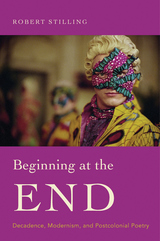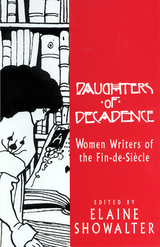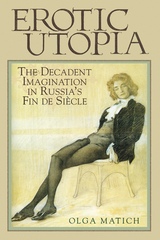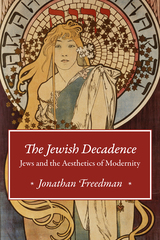
During the struggle for decolonization, Frantz Fanon argued that artists who mimicked European aestheticism were “beginning at the end,” skipping the inventive phase of youth for a decadence thought more typical of Europe’s declining empires. Robert Stilling takes up Fanon’s assertion to argue that decadence became a key idea in postcolonial thought, describing both the failures of revolutionary nationalism and the assertion of new cosmopolitan ideas about poetry and art.
In Stilling’s account, anglophone postcolonial artists have reshaped modernist forms associated with the idea of art for art’s sake and often condemned as decadent. By reading decadent works by J. K. Huysmans, Walter Pater, Henry James, and Oscar Wilde alongside Chinua Achebe, Derek Walcott, Agha Shahid Ali, Derek Mahon, Yinka Shonibare, Wole Soyinka, and Bernardine Evaristo, Stilling shows how postcolonial artists reimagined the politics of aestheticism in the service of anticolonial critique. He also shows how fin de siècle figures such as Wilde questioned the imperial ideologies of their own era.
Like their European counterparts, postcolonial artists have had to negotiate between the imaginative demands of art and the pressure to conform to a revolutionary politics seemingly inseparable from realism. Beginning at the End argues that both groups—European decadents and postcolonial artists—maintained commitments to artifice while fostering oppositional politics. It asks that we recognize what aestheticism has contributed to politically engaged postcolonial literature. At the same time, Stilling breaks down the boundaries around decadent literature, taking it outside of Europe and emphasizing the global reach of its imaginative transgressions.


Romantic writers had found in Christianity a poetic cult of the imagination, an assertion of the spiritual quality of beauty in an age of vulgar materialism. The decadents, a diverse movement of writers, were the climax and exhaustion of this romantic tradition. In their art, they enacted the romance of faith as a protest against the dreariness of modern life. Ellis Hanson teases out two strands--eroticism and aestheticism--that rendered the decadent interest in Catholicism extraordinary. More than any other literary movement, the decadents explored the powerful historical relationship between homoeroticism and Roman Catholicism. Why, throughout history, have so many homosexuals been attracted to Catholic institutions that vociferously condemn homosexuality? This perplexing question is pursued in this elegant and innovative book.
Late-nineteenth-century aesthetes found in the Church a peculiar language that gave them a means of artistic and sexual expression. The brilliant cast of characters that parades through this book includes Oscar Wilde, Charles Baudelaire, J.-K. Huysmans, Walter Pater, and Paul Verlaine. Art for these writers was a mystical and erotic experience. In decadent Catholicism we can glimpse the beginnings of a postmodern valorization of perversity and performativity. Catholicism offered both the hysterical symptom and the last hope for paganism amid the dullness of Victorian puritanism and bourgeois materialism.

The first generation of Russian modernists experienced a profound sense of anxiety resulting from the belief that they were living in an age of decline. What made them unique was their utopian prescription for overcoming the inevitability of decline and death both by metaphysical and physical means. They intertwined their mystical erotic discourse with European degeneration theory and its obsession with the destabilization of gender. In Erotic Utopia, Olga Matich suggests that same-sex desire underlay their most radical utopian proposal of abolishing the traditional procreative family in favor of erotically induced abstinence.
“Offers a fresh perspective and a wealth of new information on early Russian modernism. . . . It is required reading for anyone interested in fin-de-siècle Russia and in the history of sexuality in general.”—Bernice Glatzer Rosenthal, Slavic and East European Journal
“Thoroughly entertaining.”—Avril Pyman, Slavic Review

The first to tell this sweeping story, Freedman demonstrates the centrality of decadence to the aesthetics of modernity and its inextricability from Jewishness. Freedman recounts a series of diverse and surprising episodes that he insists do not belong solely to the past, but instead reveal that the identification of Jewishness with decadence persists today.
READERS
Browse our collection.
PUBLISHERS
See BiblioVault's publisher services.
STUDENT SERVICES
Files for college accessibility offices.
UChicago Accessibility Resources
home | accessibility | search | about | contact us
BiblioVault ® 2001 - 2025
The University of Chicago Press









